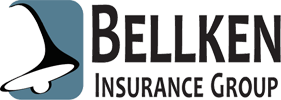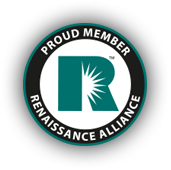Florida Janitorial or Cleaning Business Insurance
8:30am - 5:00pm Mon-Fri
Will Reply in 15min*
Top Recommended Business Insurance Policies

Index
Understanding the Janitorial Industry Landscape in Florida
Why Janitorial Business Insurance is Essential in Florida
How to Choose the Right Insurance Provider in Florida
Technology and Training: Mitigating Risks and Enhancing Insurance Benefits
Common Insurance Claims and How to Avoid Them
Future Trends Affecting Florida Janitorial Business Insurance
Conclusion: Protecting Your Florida Janitorial Business with the Right Insurance
Contact Us
Phone
Location
The janitorial and cleaning industry in Florida is a booming sector, valued at an impressive $5.6 billion with over 106,000 businesses operating statewide. This vibrant market reflects the growing demand for professional cleaning services in commercial, retail, healthcare, and hospitality sectors. With such rapid growth and competition, understanding the nuances of janitorial business insurance is crucial for protecting your investment and ensuring long-term success.
Whether you’re starting a new cleaning business or managing an established one, this comprehensive guide covers everything you need to know about insurance tailored to Florida’s janitorial industry. From the types of coverage available to common challenges faced by cleaning companies, this article will equip you with essential knowledge to make informed decisions and safeguard your business.
For more detailed industry insights, you can explore the
Florida janitorial services market overview.
Understanding the Janitorial Industry Landscape in Florida
Florida’s janitorial services market is a significant contributor to the state’s economy, with over 106,000 active businesses. This sector is part of a global market valued at approximately $240 billion as of 2023, reflecting the essential nature of cleaning services worldwide. The commercial cleaning segment, in particular, is expected to grow steadily at a compound annual growth rate (CAGR) of 6% through 2028, driven by increasing demand for hygiene and maintenance in workplaces.
Within Florida, the retail segment accounts for about 35% of the janitorial cleaning market, underscoring the importance of maintaining clean and welcoming environments for shoppers. Additionally, the hospitality and healthcare sectors have spurred demand for specialized cleaning services, including odor control products, which saw an 18% increase in usage over the past year. This surge is largely attributed to heightened awareness of health and safety protocols following the COVID-19 pandemic, prompting businesses to invest more in cleanliness and sanitation measures to reassure customers and staff alike.
These trends highlight the dynamic nature of the janitorial industry and the need for businesses to adapt to evolving client expectations and regulatory requirements. Furthermore, the integration of technology in cleaning processes, such as the use of automated cleaning equipment and software for scheduling and management, is becoming increasingly prevalent. This technological advancement not only enhances efficiency but also allows companies to provide more transparent and accountable services to their clients.
Key Challenges Facing Janitorial Businesses
Despite its growth, the janitorial industry faces several challenges that impact business operations and profitability. Labor shortages are the most significant obstacle, with about 60% of janitorial companies citing difficulty in hiring qualified workers. This issue is compounded by an aging workforce, with the average janitorial worker being 42 years old, and 65% of companies reporting challenges in recruitment. The industry is also grappling with high turnover rates, which can exceed 200% annually in some firms, leading to increased training costs and decreased service quality.
Client retention is another critical concern. Approximately 55% of janitorial firms identify retaining clients as their primary growth challenge. However, high-quality service and consistent delivery can boost customer retention rates, which average around 78% in the commercial cleaning sector. To combat this, many companies are focusing on building strong relationships with their clients through personalized service and regular communication. Additionally, offering value-added services such as green cleaning options and customized cleaning schedules can further enhance client satisfaction and loyalty, positioning businesses for long-term success in a competitive market.
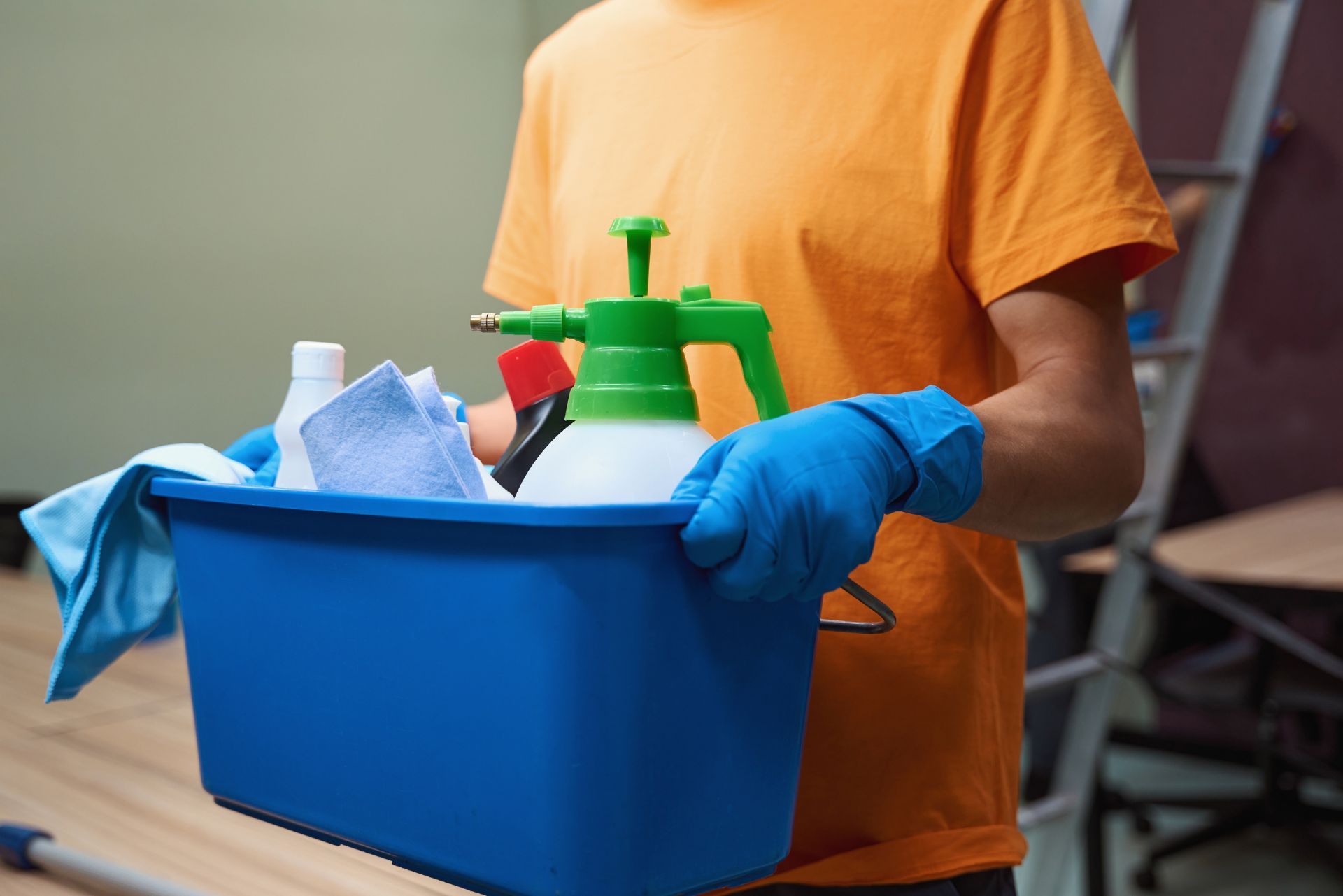
Why Janitorial Business Insurance is Essential in Florida
Operating a janitorial or cleaning business involves numerous risks, from property damage to employee injuries and client claims. Insurance is not just a regulatory formality; it is a vital safeguard that protects your business assets, employees, and reputation.
Florida’s unique climate and business environment also pose specific risks, such as hurricane-related damages and slip-and-fall accidents on wet surfaces. Having the right insurance coverage ensures your business can withstand these challenges without catastrophic financial loss. Additionally, the high humidity levels can lead to mold and mildew issues, which can not only damage property but also pose health risks to employees and clients alike. Ensuring that your business is protected against such environmental factors is crucial for maintaining a safe and healthy working environment.
Types of Insurance Coverage for Janitorial Businesses
Several types of insurance policies are essential for janitorial businesses in Florida:
- General Liability Insurance: Covers bodily injury, property damage, and personal injury claims made by clients or third parties.
- Workers’ Compensation Insurance: Mandatory in Florida for businesses with employees, this covers medical expenses and lost wages for workers injured on the job.
- Commercial Property Insurance: Protects your business property and equipment against damage or theft.
- Business Auto Insurance: Necessary if your business uses vehicles for transporting staff or equipment.
- Professional Liability Insurance: Also known as Errors and Omissions insurance, it covers claims related to negligence or inadequate service.
Choosing the right combination of policies depends on your business size, client contracts, and specific operational risks. For instance, if your janitorial service specializes in high-risk environments such as hospitals or schools, additional coverage may be necessary to address the heightened liability concerns associated with these settings. Furthermore, as your business grows, regularly reviewing and updating your insurance policies can help ensure that you are adequately covered against evolving risks.
Insurance Costs and Profit Margins
The average profit margin for janitorial businesses ranges from 10-15%, depending on the scale of operations and contract types. Insurance premiums are a significant expense but are essential for mitigating potentially devastating financial risks. The average annual revenue for janitorial businesses varies widely—from $150,000 to over $2 million—so insurance costs will scale accordingly.
Given that the average size of a
commercial cleaning contract is about $2,500 per month, maintaining a solid insurance plan helps ensure that unexpected incidents do not erode your profits or damage client relationships. Moreover, investing in comprehensive insurance can enhance your company's credibility, making it more attractive to potential clients who prioritize safety and reliability. As the cleaning industry continues to evolve, especially with the growing emphasis on health and sanitation, having robust insurance coverage can set your business apart in a competitive market, allowing you to focus on delivering exceptional service without the constant worry of unforeseen liabilities.
How to Choose the Right Insurance Provider in Florida
Selecting an insurance provider that understands the janitorial industry and Florida’s specific risks is crucial. Look for companies that offer tailored policies for cleaning businesses and have experience handling claims in this sector. A knowledgeable provider can help you navigate the complexities of coverage options, ensuring that you are adequately protected against the unique challenges faced by janitorial services.
Consider providers that offer flexible coverage options and can scale with your business growth. Since 56% of janitorial companies are small businesses with fewer than 50 employees, having customizable insurance plans is particularly important for smaller operators. This flexibility allows you to adjust your coverage as your business expands, whether you are adding new services, hiring additional staff, or entering new markets.
Additional Considerations for Florida Janitorial Businesses
Florida’s weather conditions, including hurricanes and heavy rains, increase the risk of property damage and operational disruptions. Ensure your commercial property insurance covers natural disasters common to the region. Additionally, consider policies that include business interruption coverage, which can help mitigate losses if your operations are halted due to severe weather events. Understanding the specific terms and conditions of your policy regarding natural disasters can save you from significant financial strain during a crisis.
Also, with the rise in green cleaning practices—adopted by approximately 48% of commercial cleaning companies—some insurers may offer discounts or specialized coverage for environmentally friendly operations. This not only helps you save on premiums but also aligns your business with sustainable practices, which can be a strong selling point to potential clients. Furthermore, as more consumers become environmentally conscious, having green certifications and insurance can enhance your business’s reputation and marketability in a competitive landscape.
Technology and Training: Mitigating Risks and Enhancing Insurance Benefits
The janitorial industry is increasingly adopting technology to improve efficiency and reduce risks. The use of scheduling and workforce management software has grown by 35% in the past two years, while mobile app usage for scheduling, reporting, and communication has increased by 25% over three years. These tools help minimize errors, improve client communication, and streamline operations, which can positively impact insurance premiums. Moreover, the integration of advanced analytics allows companies to predict peak demand periods and allocate resources more effectively, ensuring that staff are deployed where they are needed most. This proactive approach not only enhances operational efficiency but also fosters a safer working environment, as employees are less likely to be overworked or placed in potentially hazardous situations.
However, formal training remains a gap in the industry, with an estimated 70% of janitorial companies lacking structured training programs. Investing in employee training not only enhances service quality and client retention but also reduces workplace accidents and liability claims. Comprehensive training programs that include safety protocols, equipment handling, and customer service skills can significantly decrease the likelihood of incidents that lead to insurance claims. Furthermore, ongoing training initiatives can empower employees, fostering a culture of continuous improvement and adaptability in a rapidly evolving industry.
Workforce Demographics and Insurance Implications
The janitorial workforce is predominantly female, making up about 60% of employees, with women increasingly taking on supervisory roles. This shift towards diversity and leadership development can influence workplace culture and safety standards, potentially lowering insurance risks. Diverse teams often bring varied perspectives that can lead to innovative problem-solving and improved safety practices, as different experiences can highlight potential hazards that may not be immediately apparent. Additionally, as more women ascend to leadership positions, they can advocate for better safety protocols and training programs, further enhancing the overall safety and efficiency of operations.
Given the average janitorial worker earns approximately $11.50 per hour, competitive wages and benefits can help attract and retain qualified staff, addressing labor shortages and reducing turnover-related risks. Companies that offer comprehensive benefits packages, including health insurance and retirement plans, are more likely to cultivate loyalty among their employees. This not only reduces the costs associated with high turnover but also contributes to a more experienced workforce, which can lead to higher quality service and fewer accidents. Moreover, investing in employee well-being can enhance morale and productivity, creating a positive feedback loop that benefits both the company and its clients.
Common Insurance Claims and How to Avoid Them
Understanding the most frequent insurance claims in the janitorial industry can help businesses implement preventive measures. Slip-and-fall accidents are among the most common claims, often occurring due to wet floors or improper signage. Ensuring proper training, using high-quality cleaning products, and following safety protocols can reduce these incidents. Additionally, placing non-slip mats in high-traffic areas and using clearly marked cones or barriers can further enhance safety. Regular safety audits can also help identify potential hazards before they lead to accidents, creating a safer environment for both employees and clients.
Property damage claims may arise from equipment malfunction or accidental damage during cleaning. Regular maintenance of equipment and clear communication with clients can mitigate these risks. For example, scheduling routine inspections and servicing for cleaning machinery can prevent unexpected breakdowns that might lead to costly repairs or liability claims. Moreover, educating staff on the proper handling of equipment and the importance of reporting any issues immediately can foster a culture of accountability and care, ultimately preserving both the property and the business's reputation.
Employee injuries are another significant concern. Comprehensive workers’ compensation coverage combined with safety training programs is essential to protect both employees and the business. Implementing ergonomic practices and providing personal protective equipment (PPE) can also significantly reduce the risk of injuries. Regular workshops on safe lifting techniques and the proper use of cleaning chemicals can empower employees to take charge of their safety. Furthermore, fostering an open dialogue about safety concerns allows employees to voice their worries, leading to a proactive approach in addressing potential hazards before they escalate into serious incidents.
Future Trends Affecting Florida Janitorial Business Insurance
The janitorial industry is evolving with technological advancements and changing client expectations. The adoption of automated cleaning equipment, such as robotic vacuums, is projected to increase by 12% annually, potentially reducing labor costs and associated risks. These innovations not only streamline operations but also enhance efficiency, allowing businesses to allocate resources more effectively. As robotic technology continues to improve, we can expect to see an increase in the variety of tasks these machines can handle, from floor cleaning to window washing, further transforming the landscape of janitorial services.
Moreover, the industry is expected to incorporate more antimicrobial surface coatings to enhance hygiene standards, especially in healthcare and hospitality sectors. These innovations may influence insurance underwriting by lowering contamination-related claims. The heightened focus on cleanliness and sanitation, particularly in the wake of global health concerns, has prompted many companies to invest in advanced cleaning technologies and training programs for their staff. This proactive approach not only helps in mitigating risks but also positions businesses as leaders in health and safety, appealing to clients who prioritize these values.
As the market grows, with 80% of commercial cleaning companies generating more than half their revenue from repeat contracts, maintaining strong client relationships and consistent service quality will remain critical for business stability and insurance considerations. Additionally, the rise of eco-friendly cleaning products and sustainable practices is reshaping client expectations, as more organizations seek partners who align with their environmental values. This shift not only enhances brand reputation but also opens up new avenues for insurance products tailored to businesses that prioritize sustainability.
For a broader perspective on janitorial industry trends, visit
WifiTalents janitorial industry statistics.
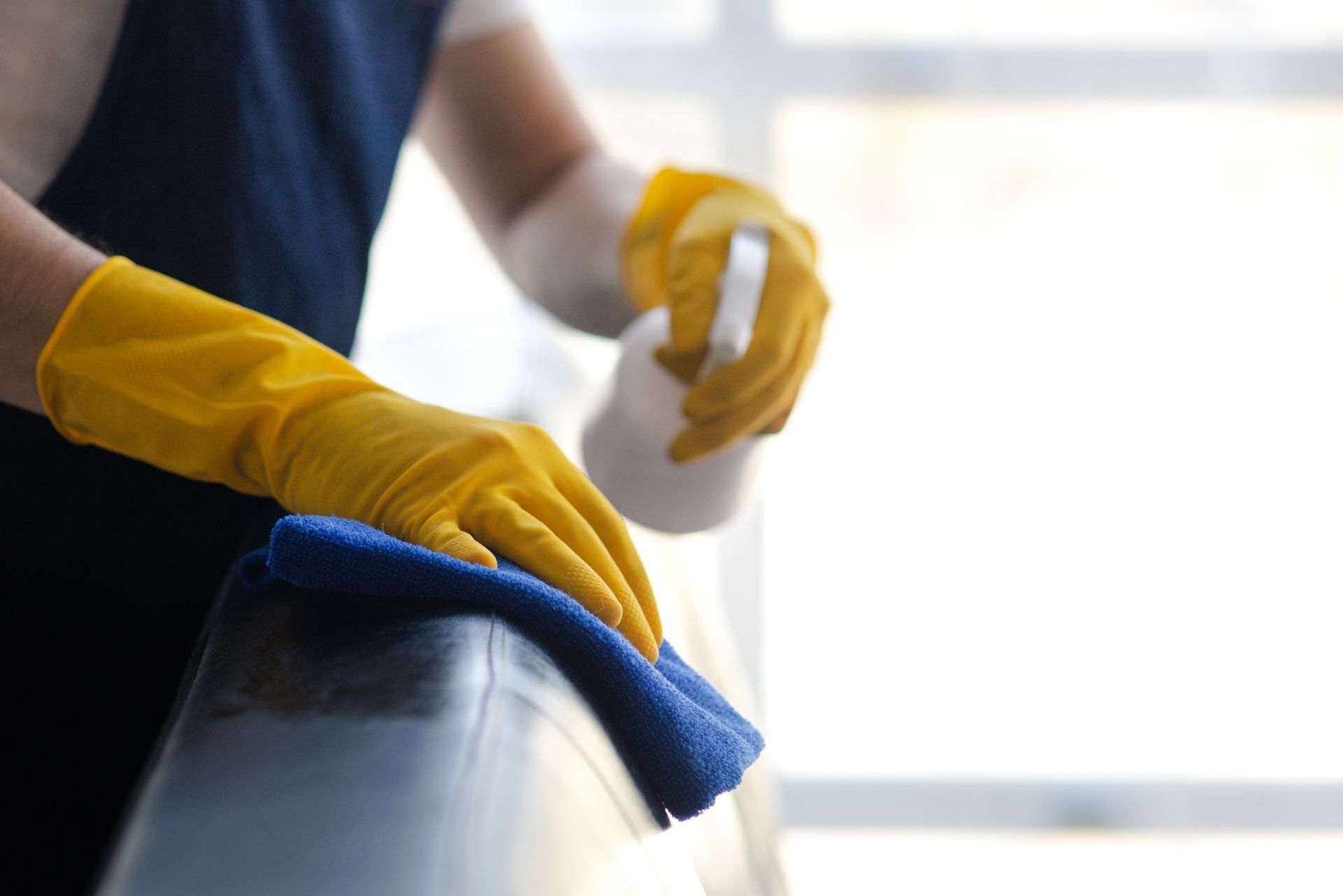
Conclusion: Protecting Your Florida Janitorial Business with the Right Insurance
Florida’s janitorial and cleaning industry offers lucrative opportunities but comes with inherent risks that necessitate comprehensive insurance coverage. Understanding the market dynamics, common challenges, and available insurance options empowers business owners to make informed decisions that protect their investments and employees.
By choosing appropriate insurance policies, investing in technology and training, and staying attuned to industry trends, janitorial businesses can enhance their resilience and position themselves for sustainable growth in Florida’s competitive market.
Remember that the right insurance not only safeguards your business but also builds client confidence, contributing to higher retention rates and long-term success.
For more information on Florida janitorial business insurance and market insights, consider visiting
ZipDo Education Reports.
